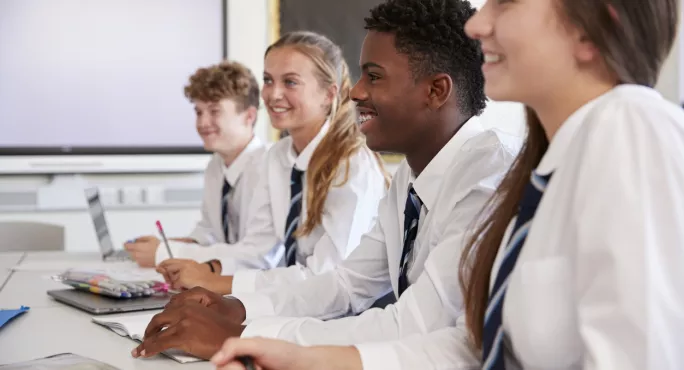Nearly a third of secondary school students in one of the country’s coronavirus hotspots were absent for Covid-related reasons in the week before half-term, new “worrying” government figures suggest.
In Bolton, 21 per cent of primary and 31 per cent of secondary pupils were reported as absent for Covid-related reasons on 27 May.
Across the North West of England, Covid-related pupil absence was 4 per cent, compared with the national average of 1.8 per cent, according to the statistics.
Headteachers: Covid data shows schools in ‘precarious situation’
Warning: ‘Far too soon’ to relax Covid safety in schools
Report: ‘No-plan’ DfE ‘resistant’ to learning Covid lessons
This was predominantly due to an increase in cases of the coronavirus in Bolton and Blackburn with Darwen, the Department for Education analysis says.
The South West of England had the lowest levels of Covid-related pupil absence of any region, with levels well below 1 per cent throughout the half-term.
Covid and schools: ‘We’re seeing the impact of the Delta variant’
The figures also show that, across England as a whole, the proportion of pupils attending state schools dropped in the week before half-term.
Around 88 per cent of state school pupils were in class on 27 May, down from 91 per cent on 20 May.
Geoff Barton, general secretary of the Association of School and College Leaders, said: “It is very worrying, though not unexpected, that there has been an increase in Covid-related pupil absence in the week before the half-term holiday.
“We are clearly now seeing the impact of the Delta variant feeding through into these statistics, and this is reflected by the fact that absence is highest in areas that have been worst affected by the variant.
“Schools and colleges are doing their very best to manage this extremely difficult situation by providing remote education to pupils who are affected but it is clearly far from ideal.
“This situation highlights the fact that the utmost caution is needed in the weeks ahead before any further easing of Covid restrictions, and the current measures must also be kept under review to see if any other actions are immediately required.”
Paul Whiteman, general secretary of school leaders’ union the NAHT, said: “We are hearing from our members that more and more schools are having to close multiple classes or ‘bubbles’, particularly in areas with higher case numbers, and revert to remote learning. One school told us that though they were not officially closed, six of their seven year groups were isolating due to Covid.
“The government must be proactive to ensure that transmission in schools, particularly in relation to the new variant, is not allowed to proceed unchecked. We must not sleepwalk into further widespread disruption to education.”




